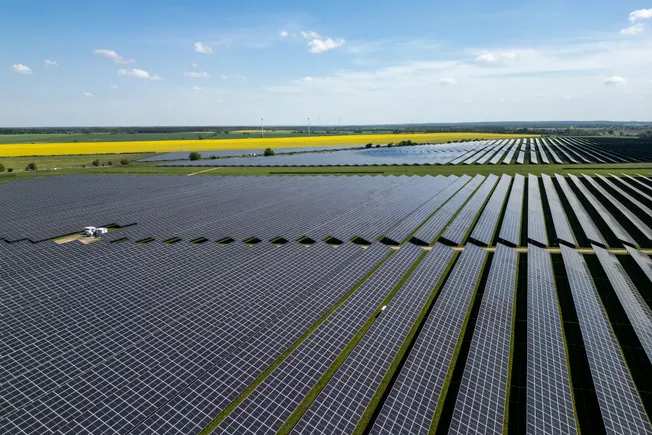
Chancellor Rachel Reeves has announced GBP 14.2 billion ($19.29 billion) for Britain’s first state-funded nuclear power station in nearly four decades, the 3.2-gigawatt Sizewell C in Suffolk.
The project – co-owned with EDF Energy Ltd., a subsidiary of French state-owned power utility EDF – is expected to power about six million homes when it becomes operational in the 2030s. It is planned to have two nuclear reactors on the east coast of England near Sizewell A and B.
“The government’s investment will go towards creating 10,000 jobs, including 1,500 apprenticeships, and support thousands more jobs across the UK”, said an online statement penned by the Treasury and the Department for Energy Security and Net Zero.
“The company [Sizewell C] has already signed GBP 330 million in contracts with local companies and will boost supply chains across the UK with 70 percent of contracts predicted to go to 3,500 British suppliers – supporting new jobs in construction, welding, and hospitality”.
Besides the offer of jobs, officials have defended the project against local protests by insisting nuclear is clean energy that will help the UK reach its decarbonization goals and highlighting that Sizewell C would help the country achieve energy independence, as well as deliver cost savings for families.
“We will not accept the status quo of failing to invest in the future and energy insecurity for our country”, Secretary of State for Energy Ed Miliband said.
“We need new nuclear to deliver a golden age of clean energy abundance, because that is the only way to protect family finances, take back control of our energy, and tackle the climate crisis”.
In a visit earlier to EDF’s Hinkley Point C, the only new nuclear power station being built in the UK, Prime Minister Keir Starmer said, “I see the future energy mix of this country as… new nuclear, nuclear and mixed with renewables”.
“Sizewell needs to move at pace along with other projects”, including one in Anglesey, the prime minister could be heard saying in a video published by Sizewell C.
Opposition to the project, led by Together against Sizewell C and Stop Sizewell C, has argued nuclear is slower and more expensive compared to other climate-friendly alternatives and that Sizewell C would harm Suffolk’s coastal environment and wildlife.
Reacting to the new funding announcement, Stop Sizewell C also demanded transparency for taxpayer money, saying the government should not have announced a commitment as negotiations with private investors were ongoing.
The United Kingdom has not opened a nuclear plant since 1995, the government statement noted. The existing fleet, except Sizewell B, is “likely to be phased out by the early 2030s”, the statement said.
It was not clear whether the funding includes previous investments. A government statement September 2024 said the government had already invested GBP 700 million and committed a further GBP 511 million.
Sizewell C’s new funding is part of GBP 30 billion that Reeves pledged for a “nuclear-powered future” under the 2025 Spending Review.
The new budget plan is also allotting GBP 2.5 billion for the development of SMRs (small modular reactors), with British company Rolls Royce selected as developer after a competitive selection process.
Rolls Royce said its technology would be deployed in three SMR sites across the UK.
“The government is also looking to provide a route for private sector-led advanced nuclear projects to be deployed in the UK, alongside investing GBP 300m in developing the world’s first non-Russian supply of the advanced fuels needed to run them”, the government statement added.
Reeves announced a further GBP 2.5 billion for nuclear fusion research and development. “This includes progressing the STEP program (Spherical Tokamak for Energy Production), the world-leading fusion plant in Nottinghamshire, creating thousands of new jobs and with the potential to unlock limitless clean power”, the government statement said.
To contact the author, email [email protected]






















